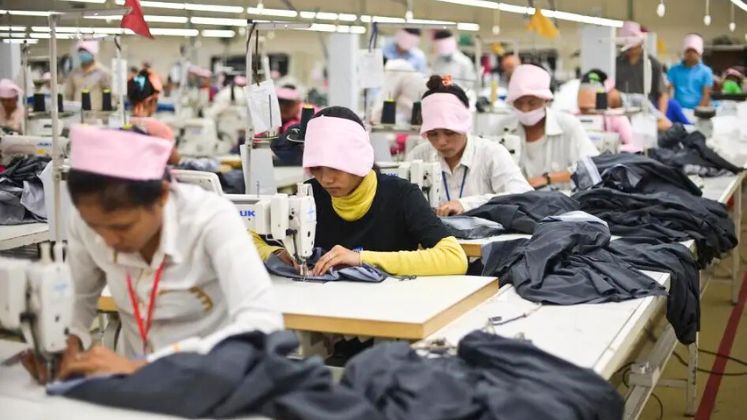
Amidst US tariff hikes, operational uncertainty continues to prevail in the Cambodian garment industry, as per the survey conducted by Better Factories Cambodia (BFC) in collaboration with International Labour Organisation (ILO) and the International Finance Corporation (IFC).
This survey showed that half of the country’s garment, footwear and travel goods, are facing the tariff impact.
Around 203 factories out of 756 registered with the BFC participated fully in the survey, and as per the analysis done, it was found that 44% of these factories have the potential of operating for three months at least, given their raw material availability and current orders status. The survey also highlighted that 55% of factories have orders confirmed till six months and 30% have orders for more than six months.
However on the downside, the survey also revealed that 15% of these factories have no confirmed orders. Speaking on the effect of tariff on the country’s garment industry, Yang Sophorn, President of the Cambodian Alliance of Trade Unions (CATU) shared that in case of bad outcome of tariff negotiations, the workers will be impacted with the closing down of some factories or possible relocations. Yang also added that it can also lead to workers losing their jobs.
The other impact of tariff has also been the waning buyers’ confidence, which has affected the garment industry in Cambodia. The Secretary General of the Textile, Apparel, Footwear and Travel Goods Association of Cambodia (TAFTAC) Ken Loo, not only confirmed the operational capacity statistics that the survey furnished but also expressed that due to tariff uncertainty, a number of buyers have not placed any future order for the later part of the year.
However, while the survey did reveal declining buyers’ confidence, it also showed confirmation from 27% of the participants that the present buyers are requesting lower prices for 2025 orders. Consequently, the survey stated that buyers are inclined towards transferring additional costs to suppliers, in the event of importing goods becoming more expensive because of fresh tariffs.
Additionally, it was also stated in the survey that 26% of factories have secured new buyers in order to overcome the order uncertainties. The survey also stated that to cope up with the tariff impact and maintain workers, the factories are on recruitment drives, enhancing training and making investments in automation other than expanding their customer base beyond the USA.
However, the challenges remain as the USA has the largest share in Cambodia’s clothing and textile exports. The exports’ share from USA alone accounted for 37.19% in 2024, followed by 16.5% from the EU (European Union).






